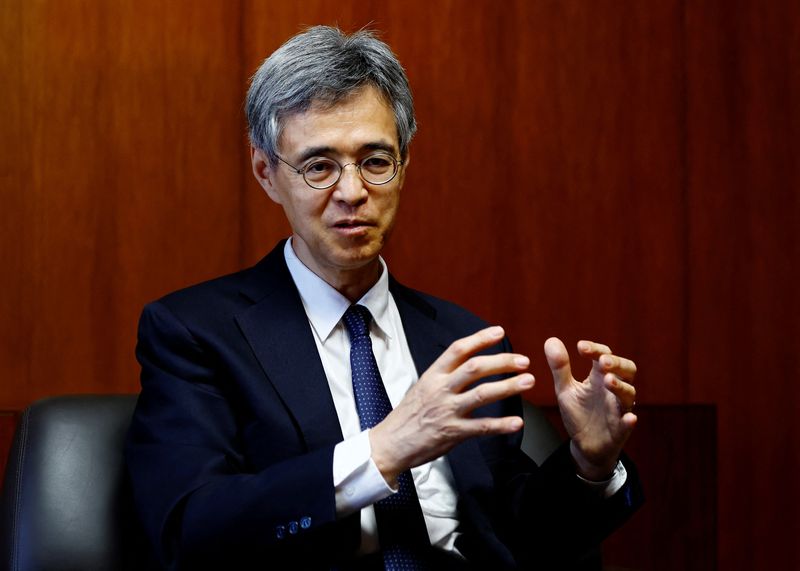By Leika Kihara
TOKYO (Reuters) – Bank of Japan Deputy Governor Ryozo Himino said on Thursday the central bank will consider raising interest rates if the board has “greater confidence” that its economic and price forecasts will be realised.
Himino said the BOJ’s decision on when to raise interest rates will be made by looking at the “totality” of data presented at each policy meeting.
“We are not on a pre-set course,” Himino said, adding the BOJ will “carefully assess incoming data, the evolving outlook, and the balance of risks at each meeting.”
The type of data the BOJ focuses on in setting monetary policy varies and changes over time, Himino said, noting that U.S. employment and consumption data, as well as Chinese consumption, may now deserve more attention than before
“Later in the year, we will have more data on the pass-through of this year’s wage hike to service prices, and qualitative and quantitative information related to the 2025 wage negotiations,” Himino said in a seminar.
The BOJ will also have more data on how exchange rate moves could affect inflation via import prices, he said, adding that the list of data to look at is “constantly evolving.”
While statistics for the full fiscal year won’t be available until after the year ends, the BOJ would not necessarily wait until then in judging whether the economy is ready for further rate hikes, Himino said.
“More importantly, we monitor data to detect developments that are not already covered in our risk scenarios. Looking at data outside the current priority list is equally important,” he said.
The BOJ ended negative interest rates in March and raised short-term borrowing costs to 0.25% on the view Japan was making progress towards durably achieving its 2% inflation target.
Governor Kazuo Ueda has signaled the BOJ’s readiness to keep raising interest rates if the economy and prices move in line with the central bank’s projections.
But he has also said the BOJ can afford to spend time scrutinising risks, such as U.S. economic uncertainties and unstable market moves, in deciding when to raise rates again.
The BOJ is widely expected to keep interest rates steady at its next meeting on Oct. 30-31, though improving economic conditions and receding U.S. recession fears are likely to bring prospects of a December or January rate hike back into view.

